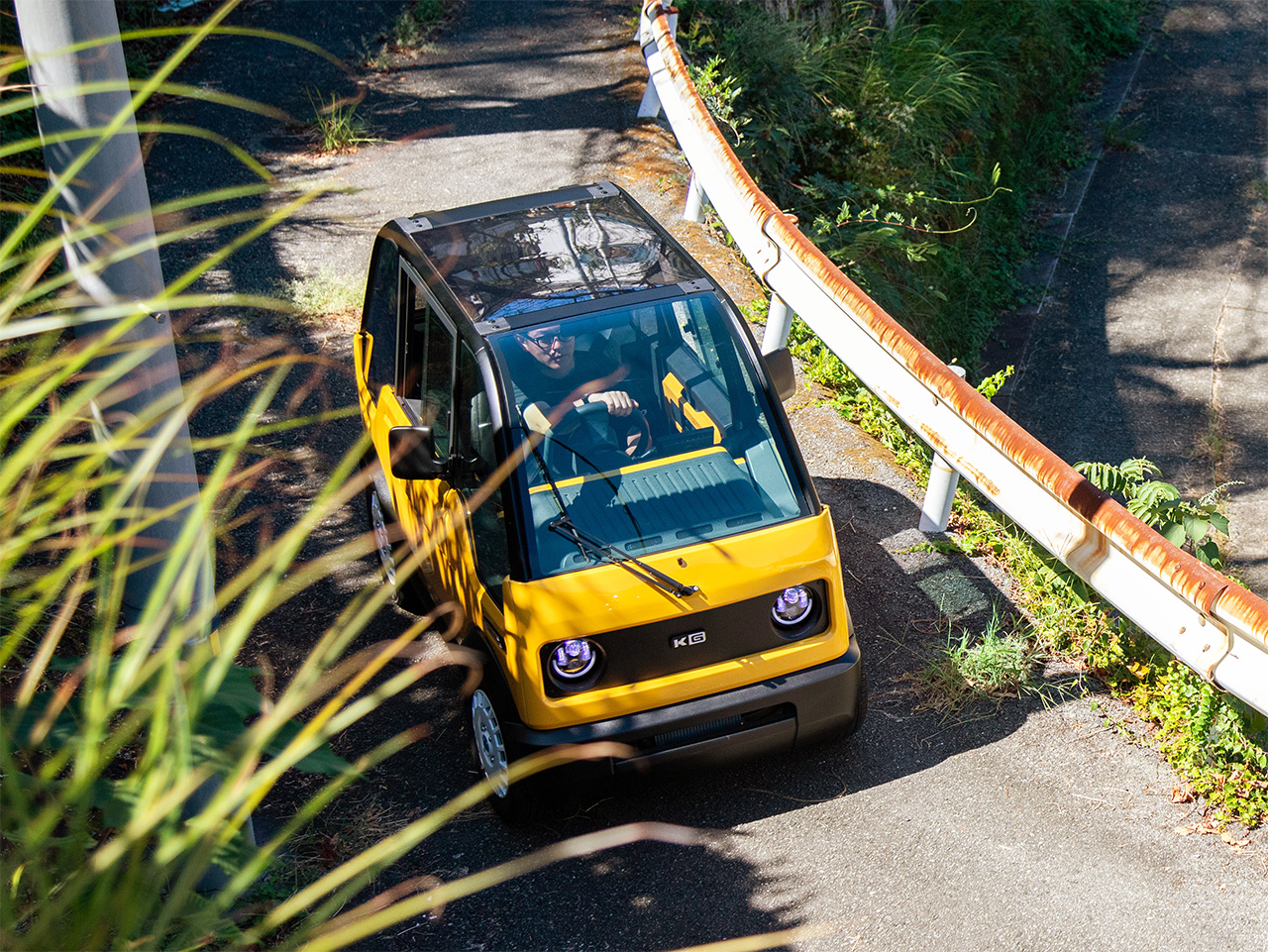Why Denmark-US relations are gone with the wind, we dive in to Paris’s Piscine Pontoise and the tiny EV with big potential.
|
Thursday 28/8/25
|

|
|
London
Paris
Zürich
Milan
Bangkok
Tokyo
Toronto
|
|
|
|

Good morning from Midori House. For more news and views, tune in to Monocle Radio or visit monocle.com. Here’s what’s coming up in today’s Monocle Minute:
THE OPINION: Seattle’s war with the state of nature
AFFAIRS: Why Denmark-US relations are gone with the wind
DAILY TREAT: Dive in to Paris’s Piscine Pontoise
IN PRINT: The tiny EV with big potential
|
|
The Battle of Denny Blaine: Nudists vs prudists on Seattle’s lakefront
By Gregory Scruggs
|

|
A nudist beach. A children’s playground. An embattled mayor. And a chain-link fence. The common thread is a sordid and silly episode that has roiled Seattle’s politics – and its summer by the lake. The saga began in November 2023, when an anonymous donor offered $550,000 (€469,000) to fund a playground in a lakefront park. The gesture quickly raised eyebrows for being situated in a spot known more for lowered trunks.
Public nudity is legal in Washington state provided that there is no lewd conduct. Denny Blaine Park has been an informal nudist beach on Lake Washington, Seattle’s most popular swimming hole, since the 1970s. Once a favoured haunt of the city’s lesbian community, it earned the nickname “Dykiki”. Today the patch of green welcomes all who prefer a dip au naturel and has managed to retain a countercultural feel, despite being wedged between waterfront mansions in the lakeside district.
The ostensibly charitable act, then, was seen as a ruse to evict the park’s regulars – nudity around children being construed as lewd and all. A park advocacy group sprang up and sounded off at public meetings throughout the winter in opposition to the project, leading the city to back off from the proposed play area. The group also pledged to volunteer for park beautification projects and strategise ways to discourage any inappropriate behaviour. But a mystery remained. Who was the donor?

Local journalists filed public records requests for mayor Bruce Harrell’s text messages and found the answer: a shopping-mall magnate who happens to be the park’s nextdoor neighbour. He alleged nude parkgoers were doing more than just sunbathing and texted some naughty photos to prove it. The mayor sympathised in response – “I share your disgust” – and directed his parks department to act.
But the rigid strictures of municipal bureaucracy don’t easily mesh with the freewheeling culture of a West Coast nude beach. Ahead of the summer of 2024, the parks department tried to demarcate clothing-required and optional zones but that scheme also crumbled in the face of public opposition. Parkgoers were unwilling to be treated like property parcels on a zoning map. An idea to assign park rangers was also floated. But would they wear a uniform or attempt to blend in?
Then came a shot across the bow. This spring, neighbouring homeowners filed a lawsuit against the city for not clamping down on being lewd while nude. In July, a judge ruled that nudity at the park had become a “public nuisance” due to the prevalence of some bad actors and gave the city two weeks to come up with a plan. The ruling forced the city’s hand and earlier this month, the parks department erected a chain-link fence (albeit wrapped in an opaque green mesh). The barrier separates the park’s beach from its inland grassy section and the department posted signs which, for the first time, formally designates the lakefront area as clothing optional.
This month also saw mayoral primary elections. Harrell, a seasoned politician, finished second to a challenger running her first ever campaign. Denny Blaine Park was hardly the only issue on voters’ minds but his clandestine acquiescence to an imperious neighbour does not appear to have endeared him to the electorate.
The fence has not been universally welcomed. Perhaps inspired by Ronald Reagan’s admonition “Mr Gorbachev, tear down this wall”, someone did just that on the barrier’s first night. It’s a sign that, even as summer comes to a close, the combatants in the Battle for Denny Blaine have not yet laid down their arms – even if they have dropped their drawers.
Gregory Scruggs is Monocle’s Seattle correspondent. For more opinion, analysis and insight, subscribe to Monocle today.
|
|
affairs:
Denmark & usa
The ongoing Denmark-US diplomatic spat just got a second wind
Denmark has long been a dependable US ally (writes Jack Simpson). It is a country with wealth, a well-funded military and a useful strategic position at the mouth of the Baltic Sea. But it has been another fraught week for the pair after a year defined by Washington’s repeated calls for the absorption of Greenland, a Danish overseas territory.
The latest episode in this tiff began on Friday when Denmark’s foreign minister, Lars Løkke Rasmussen, signed a memorandum of understanding with California governor Gavin Newsom. The deal, which promised co-operation on green initiatives and technology, would ordinarily be a savvy agreement between a rich European country and the US’s most dynamic state. But with Newsom emerging as one of the top Democratic challengers to Trump, it was perhaps always likely to irk the US president.

Frosty reception: Donald Trump Jr arriving in Greenland earlier this year
The White House response came three days later in the form of a stop-work order on the $1.5bn (€1.29bn) Revolution Wind project off the coast of Rhode Island. The project, which is 80 per cent complete, with 45 out of 65 turbines installed, was aiming to provide power to 350,000 US homes from next year. The offshore wind farm is half-owned by Danish state-energy company Ørsted, whose shares fell by some 16 per cent on Monday.
Coincidentally or not, the spat intensified yesterday when the Danish government summoned the US embassy’s top diplomat, Mark Stroh, to address concerns that US citizens with alleged links to Trump have been conducting covert influence operations in Greenland to encourage secession from Denmark. It’s the latest tit-for-tat exchange in an unravelling 200-year-old friendship. But Europe and Nato are reliant on strong relations between these historic partners – the Pituffik Space Base in northwest Greenland acts as the military alliance’s early-warning system for Arctic attacks. Continued diplomatic ructions will only put the transatlantic defence network at greater risk.
Why is US president Donald Trump eyeing up Greenland? And if it’s not for sale, would he take it by force? Andrew Mueller explains the likelihood of an old-school territorial conquest on ‘The Foreign Desk’.
|
|
• • • • • daily treat • • • • •
Take a dip in the Piscine Pontoise
For a swim with style in the heart of the French capital, few places rival the Piscine Pontoise. Tucked away in the Latin Quarter, this 1930s art deco pool offers a rare combination of heritage charm and athletic appeal. Designed by Lucien Pollet, the 33-metre pool is bathed in natural light thanks to a newly restored glass roof – part of a meticulous renovation completed by Pierre Marchand Architectes.
The unusual pool length, vintage signage and original colour palette were all carefully preserved. It’s now a serene, uplifting spot to do laps with just enough nostalgia to make each swim feel cinematic.
espace-sportif-pontoise-paris.fr
|
|
Make way for Mibot, the diminutive vehicle moving Japan’s EV sector
Japan’s unusually narrow residential streets call for smaller-than-average vehicles, which is why pint-sized hatchbacks and boxy minivans are ubiquitous in the country (writes Fiona Wilson). Now a tiny new motor that has yet to reach the market is attracting an outsized amount of attention.

Little wonder: The Mibot
Mibot, designed and built by KG Motors in Hiroshima, is an electric vehicle for one. It can travel for 100km on a single five-hour charge at speeds of up to 60km/h and comes in several colours (the cheery yellow is fetching but there’s also blue, white, ivory and grey). It can hold 45kg of luggage and be charged at home without special equipment. Where other solo vehicles prioritise compactness over comfort, Mibot has air conditioning, speakers and heated seats. And at little more than a metre wide, it navigates narrow streets with ease.
Monocle sat down with the CEO of KG Motors, Kazunari Kusunoki, to find out where Mibot is headed. You can read all about it in our September mobility issue. Or, if you’re a subscriber, you can read it here.
|
|
Monocle Radio:
the entrepreneurs
200 years of the modern railway and the future of train travel
We mark two centuries of passenger rail with a look at what’s down the line. Björn Bender, CEO of Rail Europe, discusses the direction of travel.

|
|
Newsletter:
Join us
Welcome to our world
Has this been forwarded to you
by a friend? Sign up to The
Monocle Minute and Monocle
Weekend Editions to receive your
own bulletin of weekday news and
weekend treats.
| | |